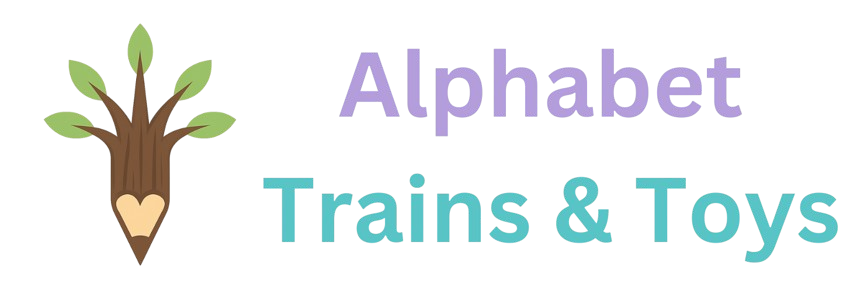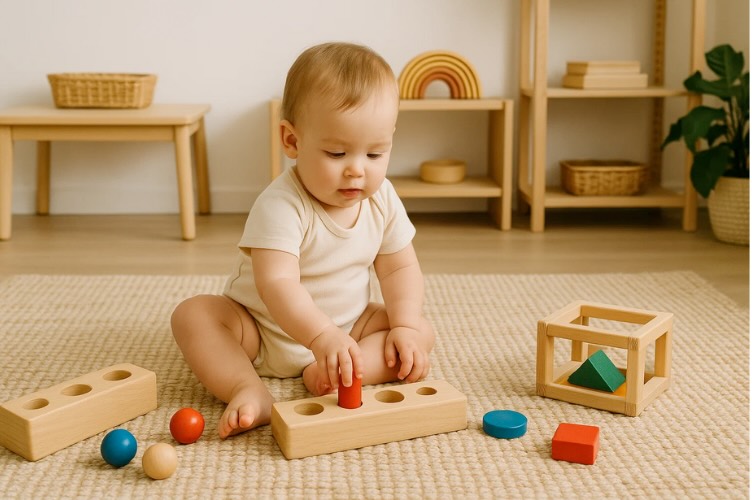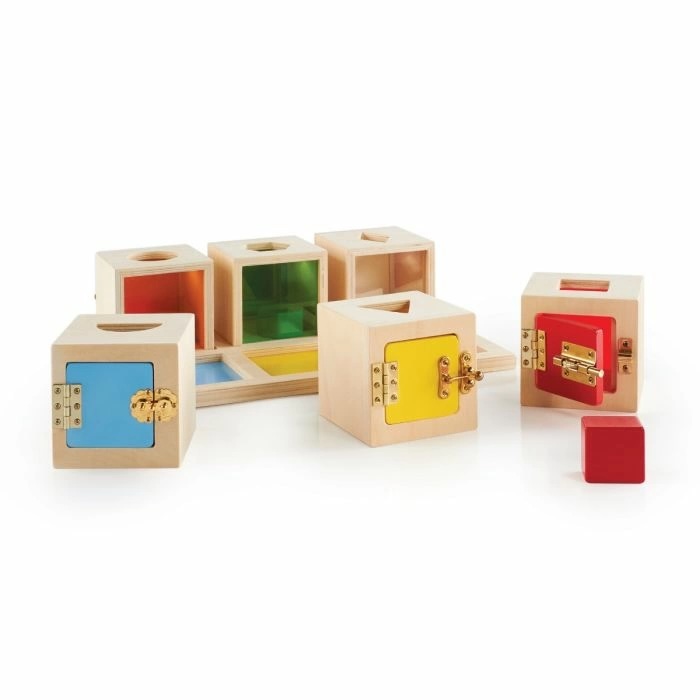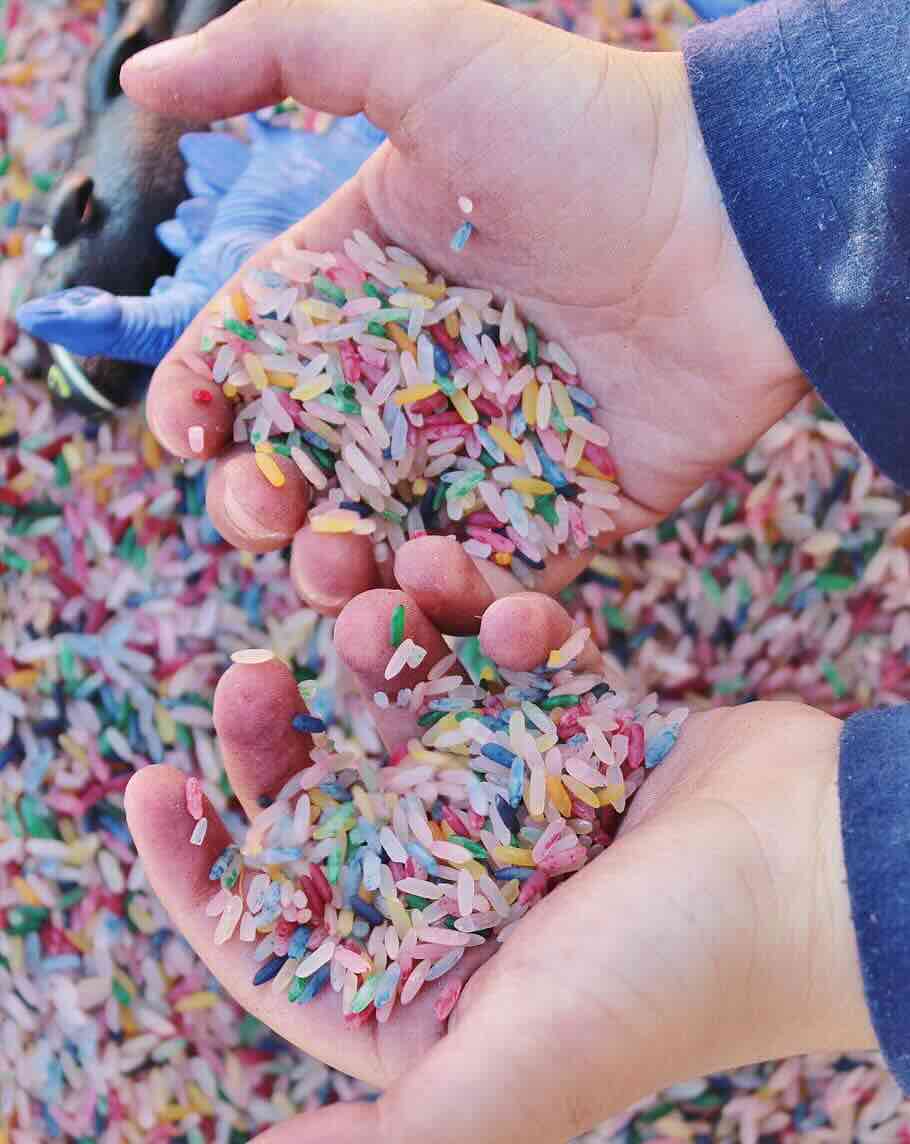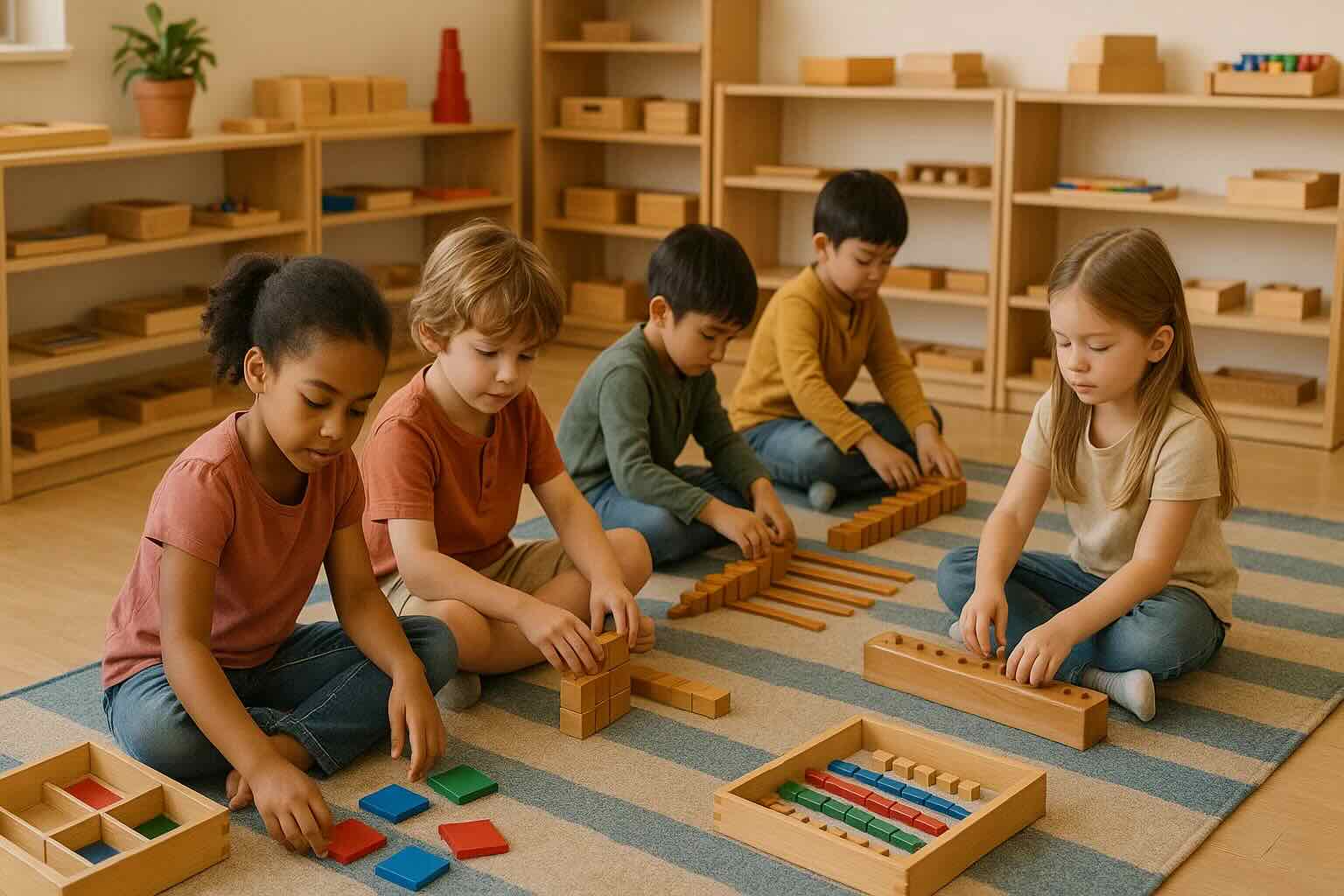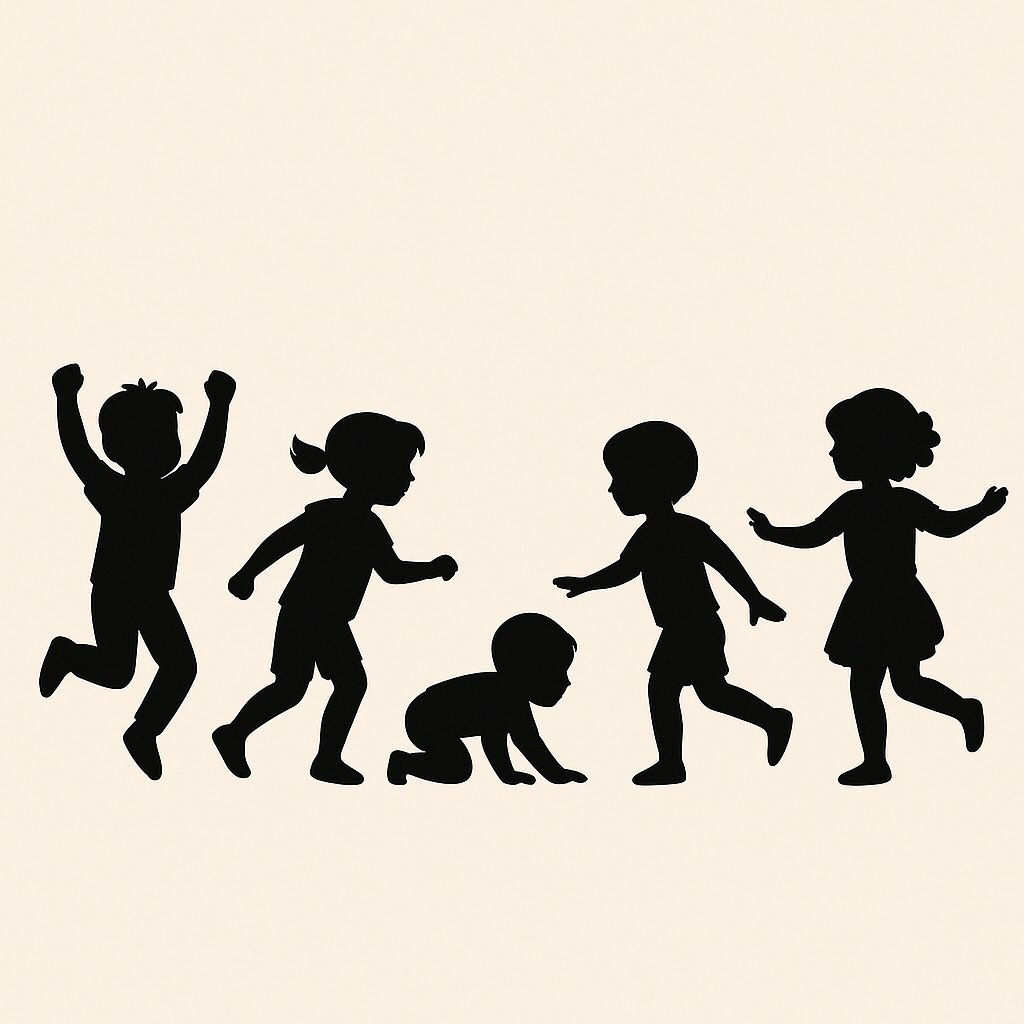Montessori Activities for 1-Year-Olds
At 12 months, toddlers are curious explorers! Montessori activities at this age focus on developing balance, fine motor coordination, language, and emotional bonding through hands-on discovery and freedom of movement.
For a full breakdown of activities suited to each developmental stage, visit our Montessori activities by age guide.
Gross Motor Exploration 🧰
Encourages cruising, climbing, standing, and balance building safely.
1. Let toddler pull up to stand using low, stable furniture.
2. Place toys slightly above head height to encourage tiptoeing and reaching.
3. Create a crawling obstacle course with cushions and soft tunnels.
4. Practice "walking practice" by holding toddler’s hands lightly.
5. Roll a ball gently across the floor for your child to chase.
6. Provide a soft playroom rug for safe crawling, sitting, and cruising practice.
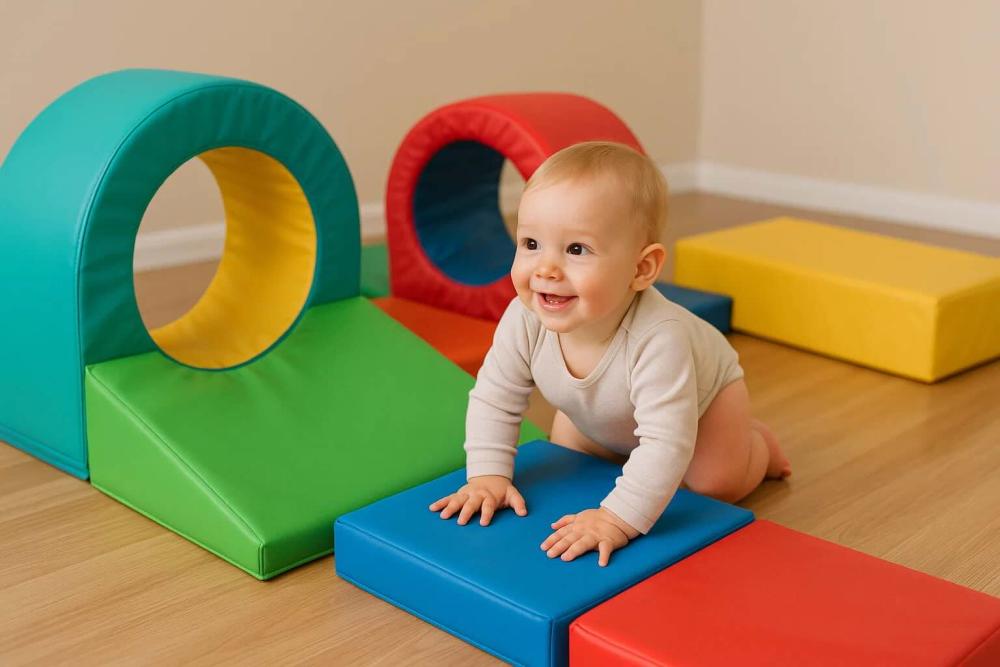
Fine Motor Skills 🤞
Builds precision in grasping, transferring, and hand-eye coordination.
7. Stack and unstack a few wooden blocks together slowly.
8. Place chunky rings on a dowel for stacking practice.
9. Drop large beads or balls into a wide container and dump them out.
10. Encourage page-turning in a sturdy board book.
11. Peel painter's tape from a tray for finger dexterity fun.
12. Let toddler remove large, safe puzzle pieces from a simple puzzle.
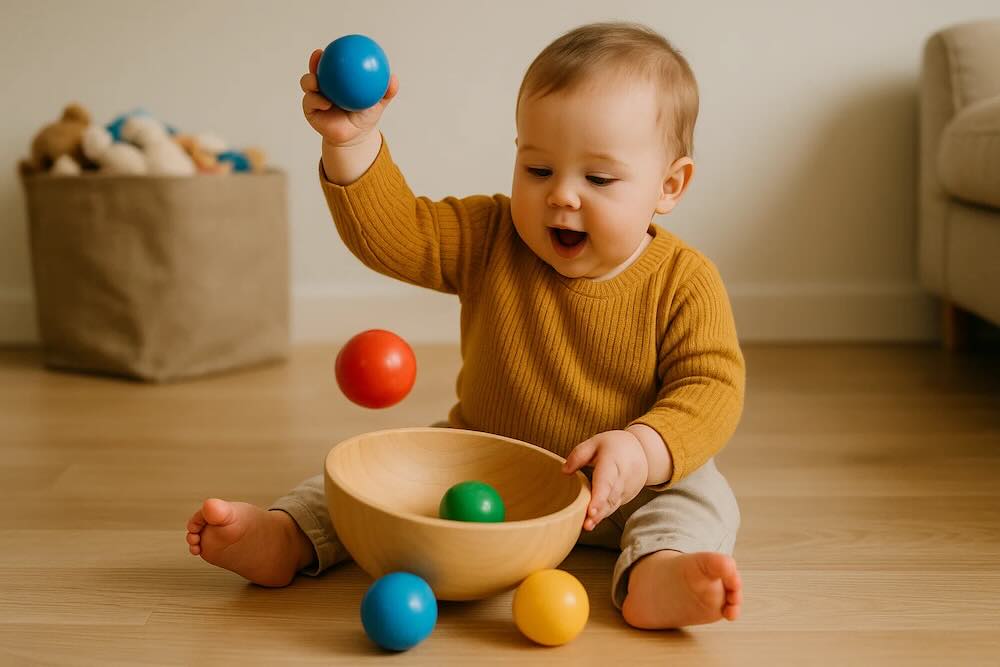
Early Sensory Play 🧠
Supports tactile exploration, temperature awareness, and spatial curiosity.
13. Fill a small shallow bin with soft scarves for pulling out and stuffing back in.
14. Offer water play using two small bowls and a sponge.
15. Introduce textured balls or rubber toys for tactile exploration.
16. Let toddler touch soft and bumpy objects.
17. Create a treasure basket of different natural materials: wood, cloth, metal.
18. Offer large wooden stacking toys to feel weight and balance.
Early Language and Sound Games 🗣
Supports early verbal interaction, receptive language, and joyful sounds.
19. Name everything you touch during diaper changes (“Wipe, cream, diaper!”).
20. Use simple animal sounds during play (“Moo,” “Baa”).
21. Sing short, silly songs that involve hand motions.
22. Read interactive story books with flaps and textures.
23. Play peek-a-boo with a favorite toy or blanket.
24. Point to objects and name them slowly with clear pauses.
Gross Motor Adventure 🧗️
Support walking, climbing, squatting, and early jumping movements.
25. Create a crawling tunnel using couch cushions or a play tunnel.
26. Set up a simple step-over obstacle with a pool noodle taped to the floor.
27. Let toddler push a sturdy wagon or cart around the room.
28. Provide a low slope (e.g., a foam wedge) for safe climbing.
29. Play gentle chase games, crawling after each other on hands and knees.
30. Encourage squatting to pick up a toy — builds hip and knee strength.
Simple Cause and Effect Exploration 💥
Babies this age love learning how their actions create changes in their world.
31. Drop balls down a ramp and watch them roll.
32. Push a toy car and watch it crash into a block wall.
33. Fill and dump a small basket repeatedly.
34. Let toddler open and close a flip-top box with objects inside.
35. Press large piano keys or toy buttons to make sounds.
36. Drop a bean bag into a big basket from different heights.
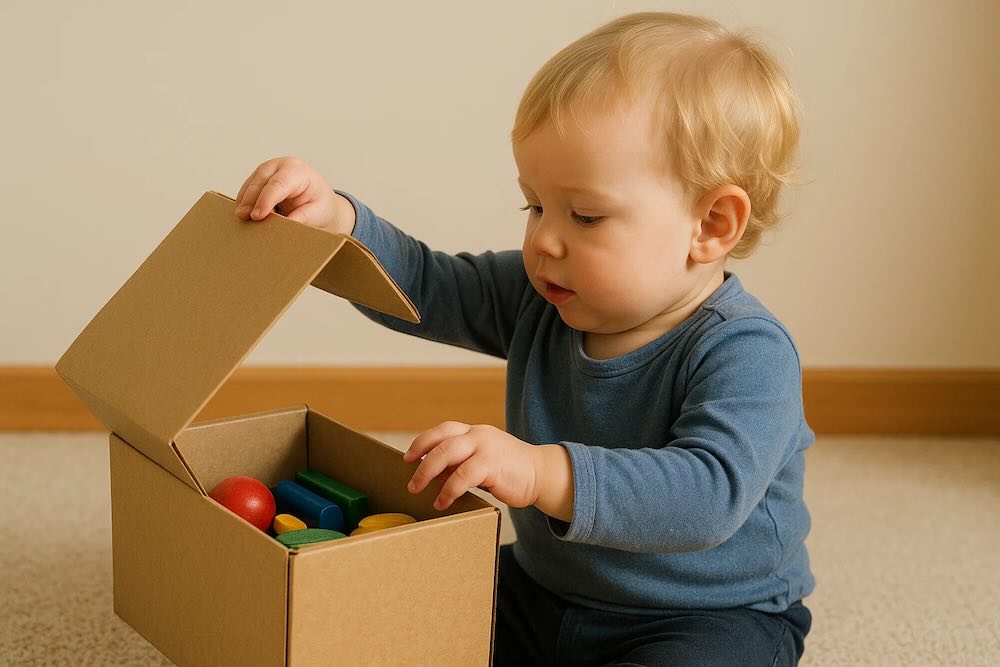
Social and Emotional Play 💌
Strengthen trust, imitation, and joyful connection through simple, interactive games.
37. Play mirror games — copy each other’s faces and gestures.
38. Hide behind a curtain and peek out dramatically for giggles.
39. Encourage "give and take" games with soft toys ("Your turn, my turn!").
40. Celebrate little accomplishments with claps and smiles.
41. Show simple emotions (“Happy!” “Sad!”) using facial expressions.
42. Offer short, gentle hugs on request to encourage consent and comfort.
Outdoor and Light Sensory Play 🌞
Nature provides endless calm sensory opportunities for young toddlers.
43. Watch leaves blow in the wind together.
44. Let toddler walk barefoot briefly on grass (supervised).
45. Blow bubbles for toddler to watch and try to catch.
46. Explore textures like tree bark or smooth pebbles (always supervised).
47. Take slow walks and point to birds, clouds, and flowers.
48. Let toddler carry a small lightweight stick or feather while walking.
Problem Solving and Early Thinking Skills 🧠
Encourage curiosity, persistence, and basic problem-solving.
49. Offer two baskets: one empty and one with toys — watch your toddler transfer items independently.
50. Stack rings slightly out of order and let toddler attempt correcting.
51. Show how a lid fits on a container and encourage imitation.
52. Hide a small object under a cloth and let your toddler discover it.
53. Offer two balls of different sizes and talk about "big" and "small."
54. Let toddler try pulling toys tied to a ribbon toward themselves.
Simple Matching and Sorting 📦
Lay early groundwork for logical thinking and visual discrimination.
55. Match two identical blocks together.
56. Offer socks in a basket and let toddler find matching pairs.
57. Sort two colors of balls into separate bowls.
58. Group stuffed animals and toy vehicles separately during play cleanup.
59. Stack books horizontally and vertically for toddler to observe differences.
60. Offer pairs of similar household items (e.g., two spoons) for grouping.
Exploring Books and Early Literacy 📚
Support love of stories, simple words, and picture-word association.
61. Point to pictures while saying each word slowly.
62. Offer cloth books for independent flipping and mouthing.
63. Let toddler choose which story book to read aloud.
64. Repeat the same story every night for familiarity.
65. Pause while reading and wait for toddler to point or vocalize.
66. Let your toddler help "turn" pages between words or pictures.
Montessori Movement Moments 🏃️
Support whole-body independence and joyful free motion.
67. Encourage walking across different surfaces — carpet, hardwood, grass.
68. Let toddler carry a lightweight object from room to room.
69. Allow climbing on safe low cushions or a climbing triangle (if available).
70. Make a ball "obstacle course" for crawling or stepping around.
71. Push a toy car while walking to practice speed control.
72. Dance freely together to simple rhythmic songs!
Looking Ahead
As your 1-year-old grows, Montessori offers more rich hands-on opportunities through carefully chosen materials. Explore our beautiful Montessori toys for 1 year olds to continue nurturing independence, curiosity, and joyful learning.
